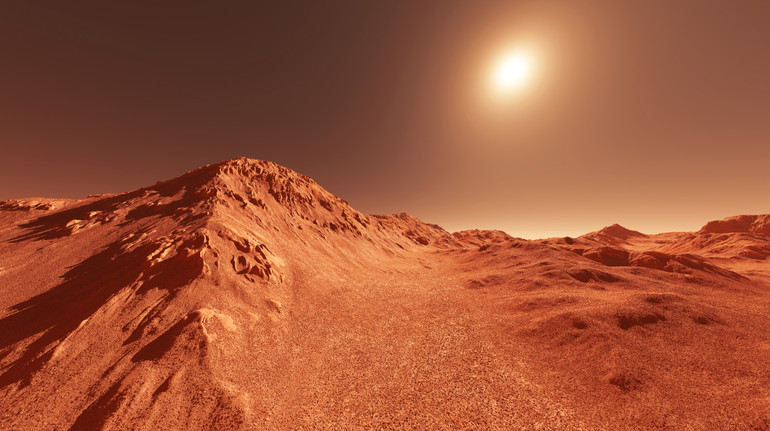On Mars found the largest organic molecules

On Mars found the largest organic molecules
Cobalt88/Depositphotos
Scientists have discovered the largest organic compounds in the 3.7 billion years of breeds taken from the ancient Lake Yellowknife Bay on Mars.
This is stated in the study, Posted In Proceedings of the National Academy of Sciences, writes The Guardian.
The sample that has found new compounds is called Cumberland. It is a piece of rock that was formed at the bottom of the Martian lake of sludge and particles of clay.
After heating in a special analyzer on board the rover, the sample released organic molecules, which, according to scientists, come from carboxylic acids (fatty acids). They are too are key components of cell membranes of all living organisms.
« These molecules can occur both as a result of chemical processes and through biology« ,-says chemist-analyst Dr. Carolin Freisine from the laboratory of atmospheric and space studies.
According to the scientist, one of the hypotheses is that these organic molecules are the remains of cells that could exist on Mars billions of years ago.
Earlier, the Curiosity rover had already discovered organic matter on Mars, but these were shorter molecules. This time, scientists have recorded ten-, eleventh- and twelve-height alkanes- much larger structures.
In living organisms, molecules with even carbon are more common on Earth – enzymes are added to fatty acids by two atoms at a time.
On Mars, researchers saw a similar trend – a molecule with 12 carbon was the most common among the three found.
”This is not proof, but a very intriguing hint. If Mars teased us: Here’s a hint but not an answer« , – comments Freisine.
Scientists also want to analyze carbon and hydrogen isotopes in found substances – it can shed light on whether they are a product of life. The problem is that such studies are possible only on Earth, in specialized laboratories.
This discovery is not a direct proof of life, but it is the closest of all observations. It also confirms that organic traces can be stored in Martian breeds for billions of years.







:format(webp)/s3/static.nrc.nl/images/gn4/stripped/data98397542-ff3861.jpg)